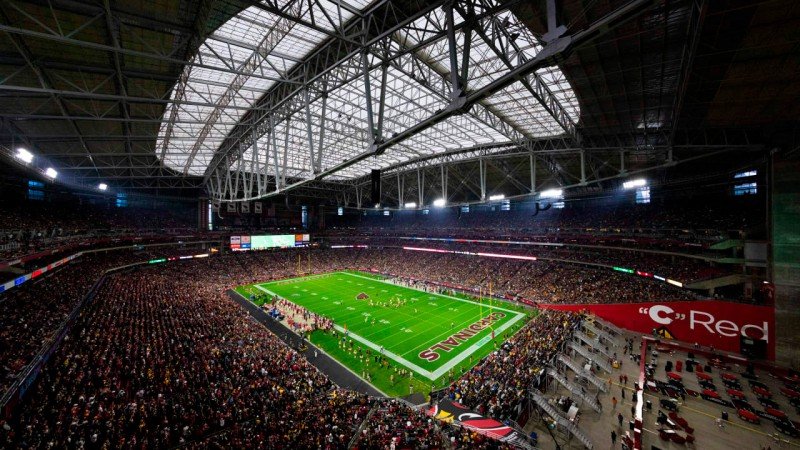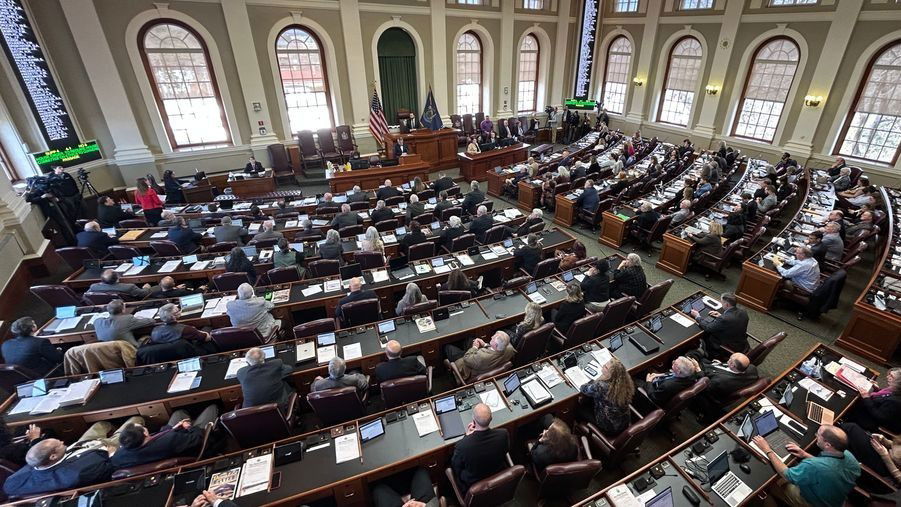NFL season expected to draw bets from a record 46.6M American adults, with half planning to wager online

A record 46.6 million American adults (18%) plan to bet on the upcoming National Football League (NFL) season —which kicks off Thursday night—, up 3% year-over-year, according to new American Gaming Association (AGA) research.
As legalization spreads, bettors are moving away from bookies and toward regulated options. In this sense, 23 million American adults will place a bet online this season, up 18% from 2021. Also, 10.6 million will place a bet in-person at a sportsbook this season, up 2% from 2021. Just 13% of NFL bettors say they will use a bookie, down two points from last year (15%) and five points from 2020 (18%). Bookie usage is 50% higher in states without legalized sports betting.
Today, more than half (132 million) of American adults can legally wager in their home state, 18 million more than this time last year. Demonstrating consumer confidence in regulated sportsbooks, nine in 10 (89%) of past-year sports bettors say it is very or somewhat important that they bet with a legal, regulated sportsbook.
Reflecting consumer demand for legal options, the number of bettors who expect to use a bookie this season is 50% higher in states without legalized sports betting than in legal sports betting states. pic.twitter.com/x8aOtmSULK
— American Gaming Association (@AmericanGaming) September 7, 2022
“The sustained interest in NFL wagering reflects the growth and continued maturation of legal sports betting across the country,” AGA President and CEO Bill Miller said in a release on Wednesday. “Consumers clearly want legal sports betting options and understand the regulated industry’s foundational commitments to responsibility.”
Sports betting is currently legal in 36 states and Washington, D.C., with 32 jurisdictions already offering operational markets. 18 of the 22 states that are home to NFL teams have legalized sports betting.
Furthermore, Connecticut, Kansas, Louisiana, Maryland and Wisconsin launched new markets since the start of the 2021 NFL season. Americans have legally wagered more than $50.4 billion on sports in the first seven months of 2022, generating more than $809 million in federal, state and local taxes.

In addition, as the NFL kick-off coincides with the beginning of Responsible Gaming Education Month, nine in ten (92%) U.S. sports bettors report awareness of responsible gaming tools. 90% recall seeing or hearing about responsible gaming in the past year, and 51% saw or heard more responsible gaming information in the past 12 months than they had in previous years.
The majority of past-year sports bettors believe responsible gaming programs are very or somewhat effective (82%) and that the gaming industry is committed to encouraging responsible gaming and combatting problem gambling (81%).
“Responsibility is an underpinning of regulated U.S. sports betting and a clear competitive advantage as we continue to build a sustainable marketplace,” Miller added.
Among NFL bettors, the Buffalo Bills and Tampa Bay Buccaneers (9%) are the most popular picks to win Super Bowl LVII, followed by the Los Angeles Rams and Kansas City Chiefs (8%) and the Dallas Cowboys (7%). The Super Bowl will be played in a legal sports betting jurisdiction (Arizona) for the first time in February 2023.
Morning Consult, on behalf of the American Gaming Association, conducted an online survey August 25-27, 2022, among a national sample of 2,210 American adults regarding their betting plans on the upcoming NFL season. The data were weighted to approximate a target sample of adults based on age, educational attainment, gender, race and region. The margin of error is +/-2 percent and greater among subgroups. Bettors include those who expect to place a bet online, with a bookie, with a casino sportsbook, in a pool, squares or paid fantasy contest, or casually with family or friends.
Also, Kantar, on behalf of the AGA, conducted an online survey August 17-23, 2022, among a nationally representative sample of 2,000 American voters aged 21 and over related to responsible gaming and industry perceptions. The margin of error is +/- 2 percent and greater among subgroups.
















































